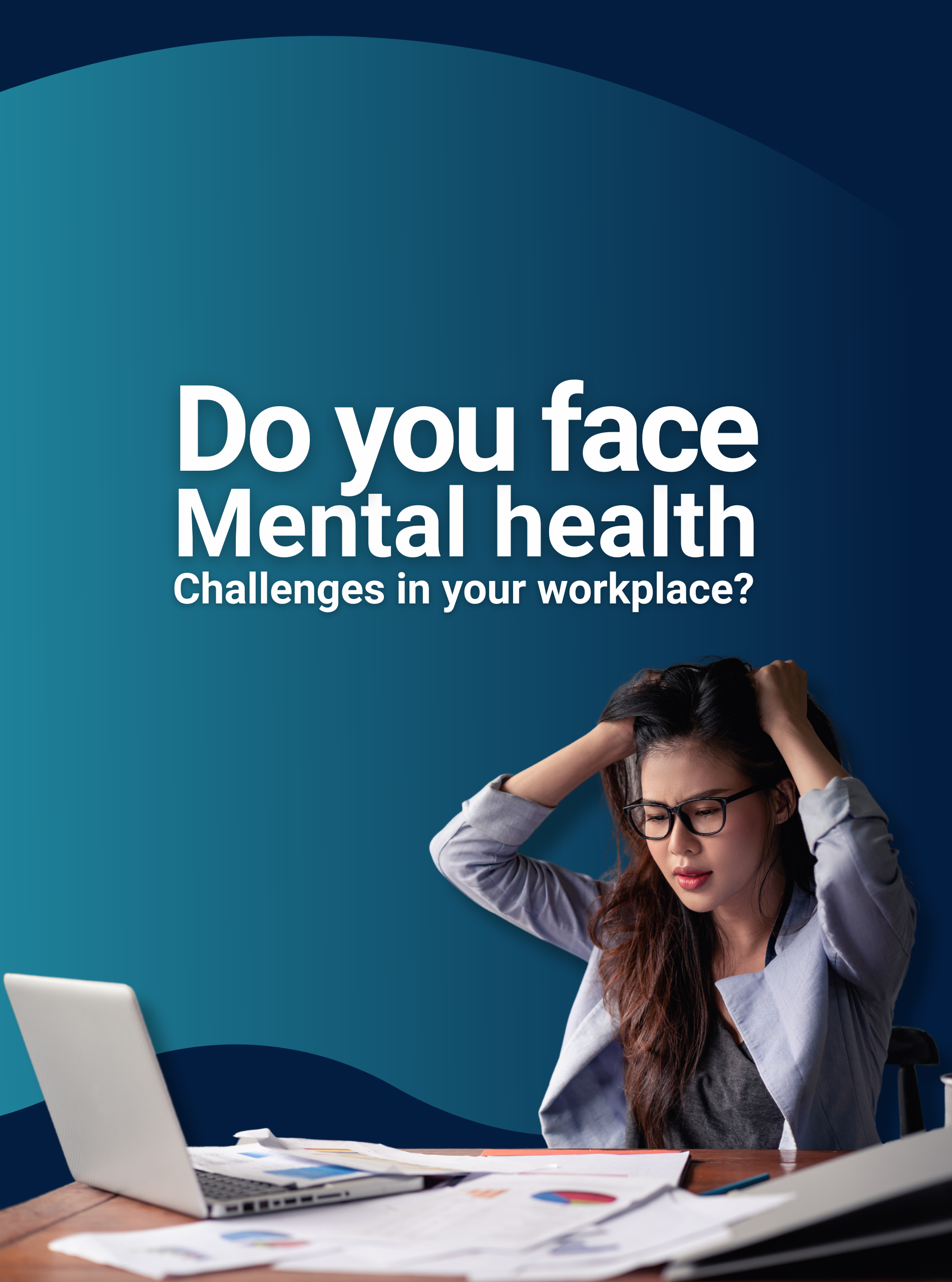


In today’s fast-paced and demanding work environments, mental health has become an increasingly important aspect of overall well-being for working adults. The pressures and challenges of the modern workplace can take a toll on mental well-being, impacting productivity, job satisfaction, and overall quality of life. It is crucial to prioritise mental health and create a supportive work culture that promotes psychological well-being, stress management, and work-life balance. By recognising the significance of mental health in the workplace and implementing proactive measures, we can foster a healthier, more resilient workforce, whereby individuals can thrive both professionally and personally.

According to Diagnostic and Statistical Manual of Mental Disorders (DSM-5), mental disorders ranges from of anxiety disorders, depression, bipolar disorder, post-traumatic stress disorder, schizophrenia, eating disorders, disruptive/dissocial disorders to neurodevelopmental disorders. According to WHO, in 2019, 1 in every 8 people, or 970 million people around the world were living with a mental disorder, with depressive disorders ranking one of the most common.

It is therefore no surprise that even the most optimistic character can crumble if exposed to a myriad of pressures (individual, family, community, and structural) simultaneously at any given time. Depression usually happens when the individual’s coping mechanism fails to come through — and those with a background of poverty, violence, disability, and inequality are at higher risk.
At work, mental health risks, also known as psychosocial risks, can arise from various factors like job tasks, work hours, workplace environment, and career growth opportunities. Work-related mental health risks include:
Under-utilised or inadequate skills for the job
Heavy workloads, understaffing, and fast-paced environments
Long, inflexible, or unsocial working hours
Lack of control over job design and workload
Unsafe or poor physical working conditions
Negative organizational culture and behaviours
Limited support from colleagues and authoritarian supervision
Violence, harassment, and bullying
Discrimination, exclusion, and unclear job roles
Issues with promotion and job security
Inadequate pay and lack of career development opportunities
Conflicting demands between work and personal life
At work, mental health risks, also known as psychosocial risks, can arise from various factors like job tasks, work hours, workplace environment, and career growth opportunities. Work-related mental health risks include:
Under-utilised or inadequate skills for the job
Heavy workloads, understaffing, and fast-paced environments
Long, inflexible, or unsocial working hours
Lack of control over job design and workload
Unsafe or poor physical working conditions
Negative organizational culture and behaviours
Limited support from colleagues and authoritarian supervision
Violence, harassment, and bullying
Discrimination, exclusion, and unclear job roles
Issues with promotion and job security
Inadequate pay and lack of career development opportunities
Conflicting demands between work and personal life

Depression causes a person to experience:
It is vastly different from the temporary mood fluctuations in response to incoming life challenges.
Here are some common feedbacks received by patients prior to seeking professional psychiatric help due to social discrimination and lack of empathy. Chronic depression when left untreated, can lead to suicide or attempts on suicide.
Is there treatment for depression?
Anxiety is a common mental health issue in the workplace, often triggered by stress. Different types of anxiety can be observed:
Anxiety often seen at work includes:

Employers can take proactive steps to support mental health in the workplace. Here are some effective strategies:
Mental disorder does not disappear in a flick of a finger. It is crucial for Malaysians to prioritise mental health and work towards destigmatising mental disorders in our society. The journey towards achieving a mentally healthy nation requires collective efforts from individuals, communities, healthcare professionals, and policymakers. By raising awareness, promoting understanding, and providing accessible and affordable mental health services, we can create an environment that supports and empowers individuals facing mental disorders.
Clinic Schedule
LifeCare Diagnostic Medical Centre, Bangsar South
Thursday:11:00AM – 5:00PM, Saturday: 10:00AM – 1:00PM

Life Care Diagnostic Medical Centre Sdn. Bhd. 200401034597 (673106-V)
Bangsar South
WhatsApp: 0122343610
1st Floor, Wisma Lifecare,
No. 5, Jalan Kerinchi, Bangsar South,
59200 Kuala Lumpur
Cheras South
WhatsApp: 01127213620
19A-2 & 19B-2, Block E, Kompleks Komersil Akasa,
Jalan Akasa, Akasa Cheras Selatan,
43300 Seri Kembangan, Selangor
Operating Hour:
Monday – Friday: 8.00am – 5.00pm
Saturday: 8.00am – 1.00pm
Sunday & Public Holidays: Closed

